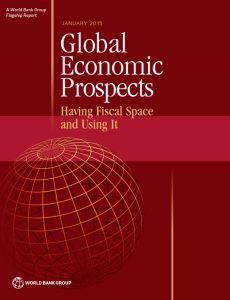Acesse a sua conta getAbstract para obter o resumo!

Acesse a sua conta getAbstract para obter o resumo!
World Bank Group
Global Economic Prospects January 2015
Having Fiscal Space and Using It
World Bank, 2015
Sobre o que é?
All nations, especially developing countries, should rebuild their fiscal buffers as protection against economic shocks.
Recommendation
This flagship report by the World Bank Group (WBG) predicts that the global economy will experience a lackluster recovery through 2017, with low oil prices and a patchy revival in high-income countries supporting relatively meager growth. In this meticulously researched, reader-friendly and well-annotated analysis, the WBG cautions that developing nations must expand their limited “fiscal space” to help them adapt to the changing economic environment. The WBG’s analysts include essays on fiscal policies, the implications of cheap oil for developing countries, global trade trends and the importance of worker remittances. Tables, graphs, figures and a statistical annex support each part of the report and feed into a central thesis: Economic risks abound, and nations will fare best that act now – while oil prices are low – to strengthen their fiscal buffers against future shocks. getAbstract recommends this timely, comprehensive and nuanced report to investors, risk managers, policy makers, analysts, decision makers in business and industry, and development executives at nongovernmental organizations.
Summary
About the Author
The World Bank Group provides financial and technical assistance to developing countries.































Comment on this summary